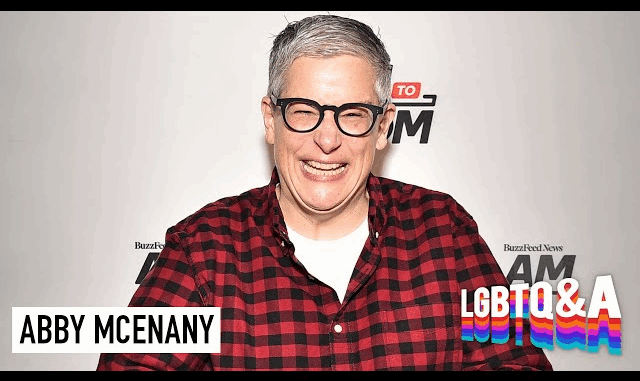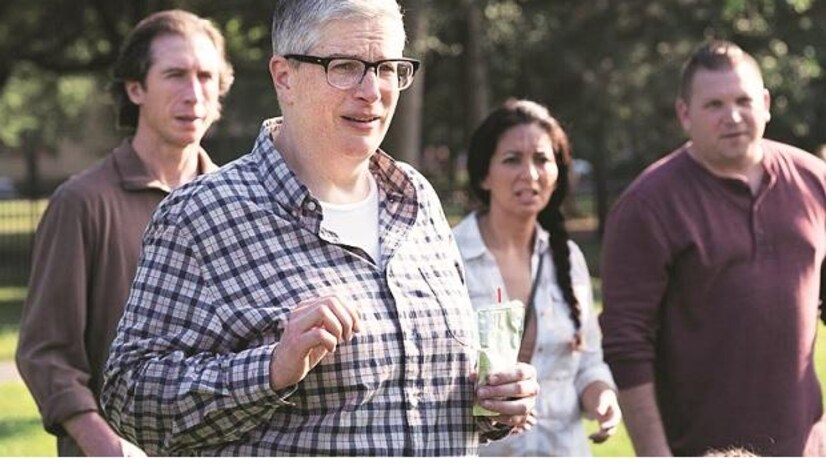
Of all the roles Abby McEnany has played, none is as important and prominent as… herself. In the series Work in Progress (2019–2021), McEnany not only starred but also co-created and wrote, bringing to the screen a character based heavily on her own life. This is a role unlike any other on American television – a middle-aged, lesbian woman living with obsessive-compulsive disorder (OCD), depression, and trying to survive in a world that never really understood her.
“Abby” in Work in Progress: An Unvarnished Portrait
In Work in Progress, McEnany plays “Abby” – a 45-year-old, lesbian woman living with OCD and feelings of failure. She struggles with suicidal thoughts, self-doubt, and awkward social situations. The show begins boldly: Abby counts out the almonds in a bag of snacks—180—and decides that if she doesn’t feel better after eating them all, she’ll end her life.
The raw, unvarnished portrayal of “Abby” has left viewers both shocked and deeply empathetic. It’s a rare time that a middle-aged queer woman, who doesn’t conform to Hollywood beauty standards, has been placed at the center of a television story. And more importantly: the character isn’t designed to be “inspirational,” but simply to be present, to be real, and to be seen.
A role that reflects McEnany herself
Unlike most actors, McEnany doesn’t need to “play a role” in a conventional way—the character Abby is her. She has suffered from deep depression, suicidal thoughts, and has also had some unusual relationships, including a relationship with a transgender man – a detail that also appears in the film.
Sharing about her role, Abby said:
“I never thought I would be on TV. But I knew if I told the real story – the hardest story to hear and talk about – maybe it would help someone feel less alone.”
Her role was a liberation – for McEnany herself and for those on the margins of society who are rarely heard. This is not acting like someone else, but bravely standing in the spotlight, exposing yourself to the whole audience.
Critical and public response
Work in Progress received a lot of praise from critics and audiences. Variety magazine called the series “one of the most authentic and necessary works on television today”. The New York Times praised McEnany’s ability to “both be funny and painful” in the role.
The LGBTQ+ community has a special affection and gratitude for the character “Abby” – an unvarnished image, not representing perfection, but representing truth.
Memorable moments of the role

The opening episode: Abby shares with a stranger in a coffee shop her suicide plan, starting with… a bag of almonds. This scene is both shocking and clearly depicts the despair wrapped up in an ordinary action.
Relationship with Chris (a transgender man): This is the main storyline of season 1, showing Abby’s maturity and openness when facing prejudice, both from society and from herself.
Episode “16,263”: Abby recalls the death of her sister – a profound shock that affected her psychologically since childhood. This is one of the most moving and heartbreaking episodes.
The impact goes beyond the screen
Abby McEnany’s performance was not only an artistic triumph, but also a social act. It raised big questions about who is “allowed” to be the protagonist, who deserves to be told stories, and whether television can be a place of healing.
After Work in Progress, Abby McEnany became an unofficial icon for people who were “different”: queer, middle-aged, living with mental illness, and who had never seen themselves reflected on screen. The character “Abby” represented them – a small but brave voice in a noisy world.
The role of “Abby” in Work in Progress was not only the pinnacle of Abby McEnany’s career, but also a rare moment of authenticity on the small screen. This is proof that art does not have to be far from life – sometimes, the most touching thing is when it dares to look reality straight in the eye, and name pain in the language of love.
